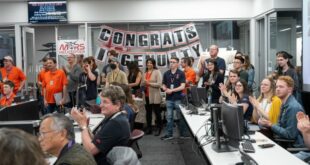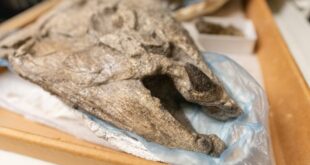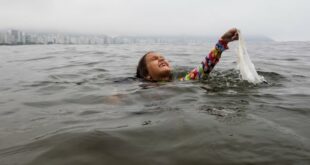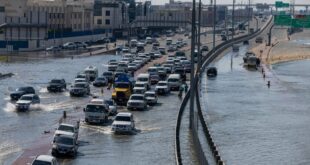Director Gabriela Cowperthwaite explains how art reflected real life in unexpected ways while making I.S.S.

Gabriela Cowperthwaite is the first to admit her new film, I.S.S., is out of step with her career to date.
The director of Blackfish (a documentary about the cruel treatment of orcas in captivity, Children of the Underground (about a covert network built to smuggle families away from abusive partners) and Our Friend (a true story of friendship in the face of terminal cancer), Cowperthwaite might be expected to focus on tales inspired by real events.
Instead, an unrealized love for thrillers, horror and blockbusters took her on a left turn — and then straight up.
"Even though I've made these earnest documentaries … this was not any of those," she told CBC News.
I.S.S., being released Jan. 19,explores what happens to astronauts and cosmonauts from the U.S. and Russia on the eponymous space station when tensions between their countries back on Earth force them into conflict while in orbit.
When a global conflict breaks out on the planet below, their respective governments instruct each team to take control of the research vessel "by any means necessary," forcing scientists isolated in close quarters hundreds of kilometres above the ground to decide how far they'll go against those they'd previously considered colleagues and friends.
To Cowperthwaite, that was enough a reflection of our present reality to get her interested.
"What I did love about it, is it sort of was a real-life situation," she said. "These are things that in some way, shape or form are playing out. And so I did love that — sort of realism-adjacent."
The most obvious of those parallels was the confinement; lead actor Ariana DeBose, who plays American researcher Dr. Kira Foster, explained that the majority of filming happened during the early lockdown phase of the COVID-19 pandemic.
"There was an intimacy that is garnered from those experiences that was very necessary for this film," she said.
"There was this overwhelming reality that art in our case sort of was imitating life."

Life imitates art
But for both Cowperthwaite and DeBose, the more obviously prescient part of the film only took shape once they had already wrapped filming, when Russia invaded Ukraine, leading to a war between those countries and increased tension with governments around the world — including the United States.
In her 2022 documentary, The Grab, Cowperthwaite investigated and directly questioned the possibility of a coming war between Russia and Ukraine after witnessing troop build-up on the border between the two countries.
After I.S.S. was completed, the subsequent invasion added another political element to the film, one that its creators hadn't counted on.
However, Cowperthwaite said the themes she attempted to infuse into the film are relevant to all political events and eras.
"To be able to tease out just, you know, 'The moment I distrust you, I become less trustworthy,'" she said. "Existential questions [that] are baked into these very human astronauts. And all of that was just a very exciting playground for me to be in."
Zero gravity
Another imitation was more physical. DeBose, who first found fame competing in So You Think You Can Dance before moving to Broadway, got to flex those dance muscles on set.
Since virtually the entirety of the film takes place in zero gravity, the actors were suspended from a central harness system that attached to their waists.
For DeBose, orienting her body in space was something she was already intimately acquainted with. Doing it in a way that served the characters though, wasn't so familiar.
"It was also a challenge because these are very human scientists — they are not all graceful," she said. "And so sometimes I was like, 'Cool, stop pointing your foot. Nobody cares. They're not looking at your feet.'"
A new hope
Despite the pessimistic and dark themes the film explores, DeBose says it is ultimately a hopeful look at that situation — and a hopeful film in general.
That should be the point of all cinema, she added.
"Movies, especially given their power to reach people, they can change hearts and minds," she said. "Whether it be horror, thriller, sci-fi or a musical — hope, it should always be baked somewhere in there. Otherwise, I don't really know what we're doing."
*****
Credit belongs to : www.cbc.ca
 MaharlikaNews | Canada Leading Online Filipino Newspaper Portal The No. 1 most engaged information website for Filipino – Canadian in Canada. MaharlikaNews.com received almost a quarter a million visitors in 2020.
MaharlikaNews | Canada Leading Online Filipino Newspaper Portal The No. 1 most engaged information website for Filipino – Canadian in Canada. MaharlikaNews.com received almost a quarter a million visitors in 2020.







